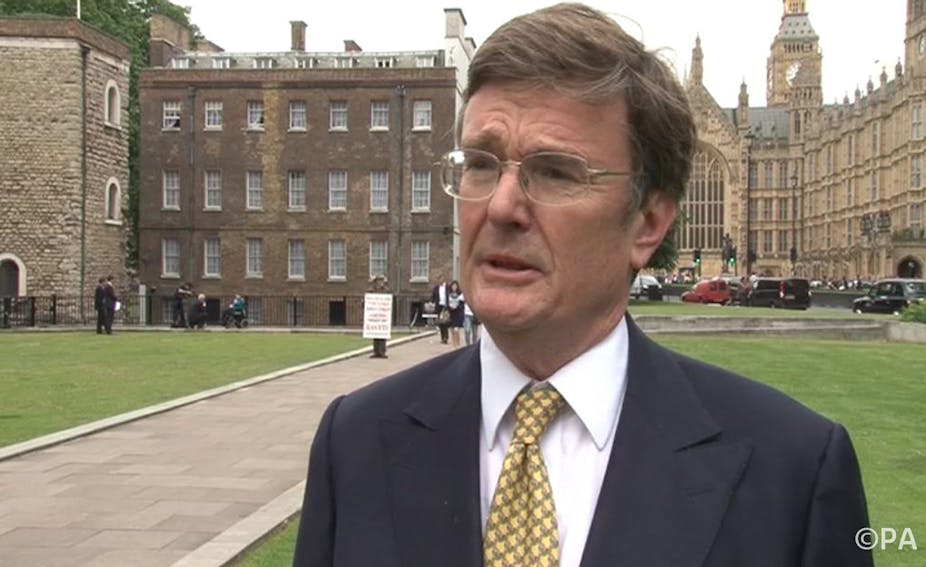Lord Oakeshott has resigned from the Liberal Democrats because he believes Nick Clegg has turned the party he loves into a party with “no roots, no principles and no values”. With these words he thrust the party’s problems firmly into the spotlight and put its very survival at risk. It’s fair to say, it has been a bad week for the Lib Dems.
But, in many ways, it’s surprising that there hasn’t been more vocal dissent before now. Since 2010, when the Liberal Democrat leadership decided to enter into coalition with the Conservatives, the party has been in a state of internal turmoil. Large numbers of party members have left, activists have dropped out, and election results have (with the odd exception – Eastleigh) been far from reassuring.
Despite these disconcerting signs, the Liberal Democrat leadership has stuck with the coalition. Stressing the national interest and the need for co-operation, Clegg has defended his actions and continued to instruct his MPs to vote with the government. While these actions could be seen as selfless sacrifices made for the country’s good, they also hint at an ideological division within the party. Indeed, it is possible to argue that many at the top of the party actually support policies deemed so abhorrent by figures such as Lord Oakeshott.
In this sense, Clegg has not led his party to have “no roots, no principles and no values”. Rather he has promoted a very different set of roots, principles and values to those favoured by Oakeshott. These are not those values traditionally associated with the party’s public image as a left-of-centre party, but are still a key part of the party’s ideological tradition.
The Liberal Democrats have historically been a divided party. Founded by the merger of the Social Democratic Party and the Liberal Party, two distinct strands of thinking can be identified which offer very different visions for society. On the one hand are socially liberal thinkers who support state intervention, redistributive taxation and social equality. While on the other are economic liberals who promote personal freedom, limited regulation and low taxes – wanting to remove the constraints placed on individuals. When the Liberal Democrats were out of government these two wings could live comfortably side by side, with little public sign of division. But, in government, the differences become stark as Liberal Democrat ministers make and endorse policies which promote one ideological strand at the expense of the other.
Ideological struggle
Clegg, and many Liberal Democrat ministers, can be aligned with an economically liberal perspective, as attested by their contributions to the Orange Book. These ideas contrast with those social liberal principles held by Lord Oakeshott, the Lib Dem president, Tim Farron, many party members and previous leaders such as Charles Kennedy. The party in government is therefore seen by many critics to be advancing an ideological agenda divorced from the socially liberal perspective of many Liberal Democrat supporters. But it is important to note that not all members favour social liberalism – many endorse the approach taken by Clegg.
The tension between these ideological traditions has been evident at certain points in the coalition. Think back to the party membership’s outrage over coalition plans to introduce more private provision and competition into the NHS – a policy only “paused” after significant internal party dissent. Or the discontent over the government’s immigration strategy. The fundamental mismatch between the ideology of many party supporters (and representatives) and the actions of the government has been frequently voiced. Oakeshott’s attack on Clegg has only made the difference more publicly recognisable.
From this perspective, Oakeshott’s decision to attack Clegg for making the Liberal Democrats a “split-the-difference” Centre Party with no values or roots, appears a little strange. It is not that the party has no ideas, but rather that, under Clegg, it has moved away from the socially liberal or, “radical progressive party” agenda favoured by many of Clegg’s critics.
Oakeshott’s call for Clegg to resign (or be forced out) is unlikely to solve the Liberal Democrat’s problems. A new leader could satisfy the appetites of socially liberal party members, and open the door to the return of many disaffected party members. But it would not resolve the fundamental ideological division which underpins the party.
The problem for the Liberal Democrats is that, by nailing its colours to the mast and supporting economically liberal Conservative policies, the party leadership has alienated many (but by no means all) supporters. In power, the party no longer presents an ambiguous identity capable of amassing appeal from a range of sources. No matter who leads the party, the Liberal Democrats are likely to experience profound identity problems and find it difficult to regain the wide base of support the party possessed pre-2010.

